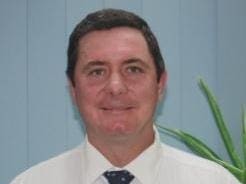 North Western Queensland cattlemen say water holds the key to unlocking the massive agricultural potential that exists in the region and reducing their over-reliance on the live export trade.
North Western Queensland cattlemen say water holds the key to unlocking the massive agricultural potential that exists in the region and reducing their over-reliance on the live export trade.
And it is already there – they just need access to it.
Last Thursday’s Northern Outback Beef and Roads Forum in Cloncurry heard about plans to build a local abattoir in the region to provide additional competition for northern cattle.
However it was also told that greater access was needed to irrigation from rivers to support cropping for cattle finishing in the region.
Cloncurry Shire mayor Andrew Daniels said one graph presented at the forum highlighted the potential that exists to increase agricultural developments in the north.
It showed that the amount of rainfall that falls in northern Australia each year is about six times greater than the rainfall that falls in Southern Australia each year.
“But the amount of agriculture in Southern Australia is nearly 20 times what is in northern Australia, and that is because we can’t get water licenses, everything is tied up, you can’t get access to it,” Cr Daniels said.
The Cloncurry cattleman and stock and station agent said the recent live export ban had exacerbated the impacts of already mounting costs and declining terms of trade for the northern cattle industry.
During his visit to Cloncurry agriculture minister Joe Ludwig was taken to the Cloncurry saleyards and shown a mob of steers that would normally have gone to the live export trade.
Cr Daniels said they would have normally made $1.80 to $1.90/kg or $630-$660 per head, but had now surpassed Indonesia’s 350kg weight limit and would now return $1.40 or around $530 per head.
A typical private cattle producer in the Cloncurry Shire will endure a 26pc drop in income over the next two years as a result of the ban, according to the council's calculations.
Cr Daniels said that Senator Ludwig appeared more open to listening to cattle producers on his most recent visit.
“He certainly didn’t stonewall us like he did at Mount Isa.
“He just put up a barrier there and no one could get through it.
“He was certainly a lot more pleasant to talk to.
“He was still very resilient that the live export ban wasn’t his fault, it was industry’s fault.”
Senator Ludwig has maintained that the industry has been too heavily reliant on a single market.
Northern producers are now hoping the Federal and State Government will support their calls to open up water infrastructure in the north to drive diversification.
Last week’s forum was convened to give community and business representatives across 13 shires in north western Queensland the opportunity to discuss future infrastructure and development needs for the region.
More than 100 resolutions were passed dealing with a wide range of issues, including water and roads infrastructure, the erosion of land tenure, Wild Rivers legislation, the impact of fly-in-fly-out-workforces, the need for more housing, and calls for updates to the zone allowance system that had not been revisited in 30 years.
Cr Daniels said that once the resolutions had been refined to remove duplication, they would be presented to the State and Federal Governments and oppositions.
“The election is around the corner, let’s see what sort of policy these people can come up with and that is the way we will vote, anyone who supports that policy that we want to see change.”
One source of good news at the forum was the announcement by Queensland Main Roads minister Craig Wallace of $195 million of State and Federal Funding to assist in the reconstruction of roads damaged by cyclones and floods last summer.
More than 346km of north western Queensland roads sustained damaged ranging from pot holes to deterioration of road pavements and erosion on unsealed roads.
